Diversity and inclusion

Contents
Introduction
What is diversity and inclusion?
Why is diversity and inclusion important?
What are the challenges of diversity and inclusion in the workplace?
Diversity dimensions
Case studies of diversity and inclusion in the workplace
Conclusion
Introduction - Diversity and Inclusion
Diversity and inclusion, or D&I, can be a vital source of competitive advantage, a vehicle to demonstrate corporate social responsibility and a pathway to add value and fuel growth.
This article takes a deep dive into what diversity and inclusion mean in the workplace and explores the benefits and challenges of diverse workforces. We also share some specific use-cases that have informed our D&I strategy at Investa.
For us, it’s simple. Our goal is to create an inclusive culture and work environment where our diverse team of people feel safe and supported to bring their whole selves to work every day. We know that, when they do, our people deliver their best work and achieve exceptional outcomes for our customers, partners and investors.
Diversity in the workplace means creating a workforce of people with varying social identities – from age to ability, cultural background to caring responsibilities, gender to religious beliefs, sexual orientation to socio-economic background. Diversity also includes professional identity, such as level of profession, education, work experience and organisational seniority.
Diverse teams and organisations reflect the society and communities in which they operate and the customers who they serve.
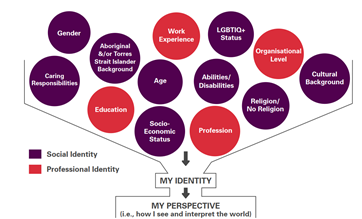
Image source: Diversity Council Australia
An individual’s social and professional identity informs their unique perspective of the world.
While diversity refers to the traits and characteristics that make people unique, inclusion refers to the social norms and behaviours that ensure people from all backgrounds feel welcome and respected. An inclusive work environment is one in which all individuals are treated fairly, valued, respected, and have access to the same opportunities and resources as others. In an inclusive culture, everyone has a voice.
Leading organisations today recognise that diversity and inclusion are both required. When organisations cultivate both, they are rewarded with much better results than they would achieve by just focusing on diversity alone.
“Hiring a bunch of people from different backgrounds will not automatically deliver business benefits. Workplace integration, inclusiveness and effective management are needed to make diversity work.”
Dingjian, in De Cieri et al, 2005
In a nutshell, diversity and inclusion embrace difference and embeds that into organisational DNA. Diversity and inclusion are values a long way from “tolerance”. Instead, the principles of diversity and inclusion are underpinned by genuine acceptance, support and celebration of difference, and a commitment to creating a work environment that is safe, positive and nurturing.
According to the Diversity Council of Australia, those in a diverse and inclusive workplace should feel:
- Respected for who they are and able to be themselves
- Connected to their colleagues and feel they belong
- Contributing their perspectives and talents to the workplace
- Progressing in their career at work (in other words, feel they have equal access to opportunities and resources).
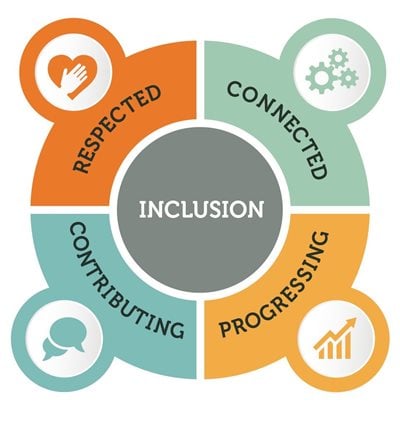
Image source: Diversity Council Australia
Everyone brings something unique to their organisation. We are all shaped by life experiences that give us a diverse set of perspectives, skills and qualities that we can bring to the workplace.
“In simple terms, diversity is the mix and inclusion is getting the mix to work well together.”
Global Diversity Practice
3. Why is diversity and inclusion important?
Financial outperformance
When diversity and inclusion are done well, organisations can reap a real return-on-investment (ROI).
When people feel valued, research shows that they are happier, more engaged, more motivated and they perform at a higher level.
According to McKinsey & Company’s 2018 Delivering through Diversity report, companies in the top quartile for executive-level gender diversity were 21 per cent more likely to experience above-average profitability than companies in the fourth quartile.
McKinsey also found that companies in the top quartile for ethnic and cultural diversity were 33 per cent more likely to outperform on the EBIT margin.
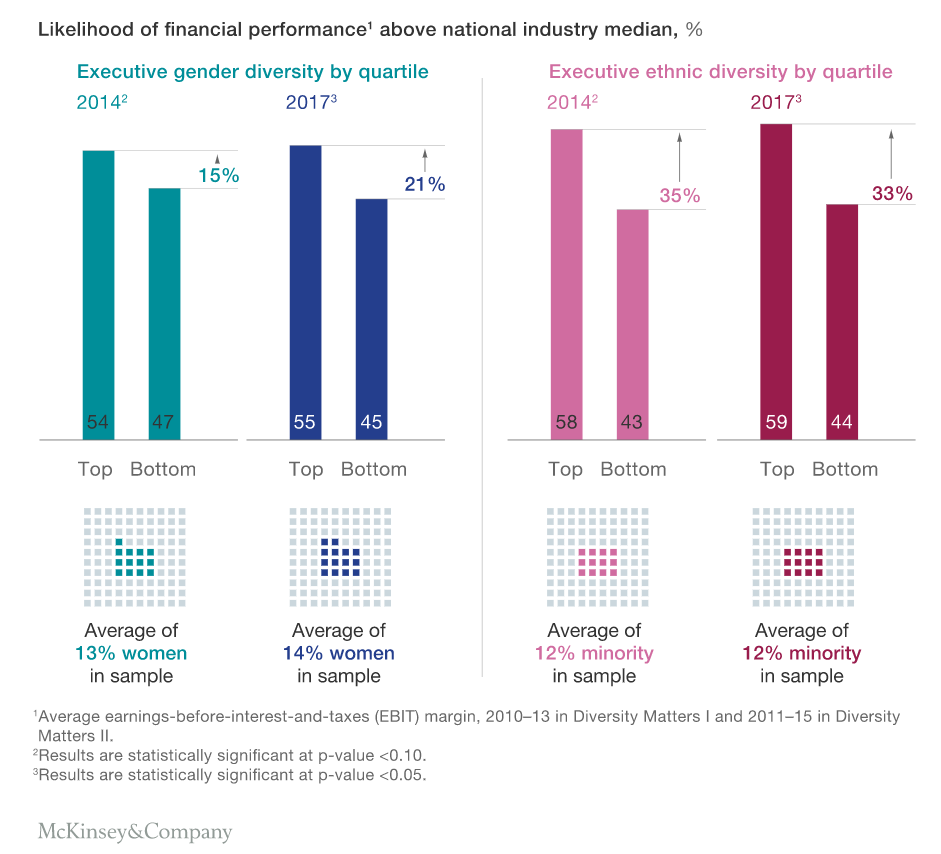
Source: McKinsey & Company
Boston Consulting Group’s 2018 report, How diverse leadership teams boost innovation, found “companies that reported above-average diversity on their management teams also reported innovation revenue that was 19 percentage points higher than that of companies with below-average leadership diversity –45 per cent of total revenue versus just 26 per cent”.
Diversity and inclusion are vital for any organisation that wants to achieve a high-performance culture.
At Investa, we believe a diverse and inclusive work environment boosts commercial performance and contributes to investor value.
Win the war for talent
Companies understand the importance of attracting, developing and retaining talent, and a diverse and inclusive workplace is central to this.
Strengthening human capital remains one of the top challenges for CEOs globally and D&I can differentiate an organisation from its peers.
Landing the best talent today requires more than a big “salary plus super” package. Glassdoor, which ranks the world’s best places to work each year, found that 67 per cent of job seekers view diversity as an important lens through which to evaluate potential job offers. This means that companies that foster diverse and inclusive work environments are much more likely to attract the best talent.
Retaining talent is just as important. The same Glassdoor report found that 57 per cent of employees think their company should be doing more to increase diversity and 14 per cent didn’t think their company had a diverse executive team.
From the company’s perspective, targeting diverse candidates provides them with a wider and better talent pool.
At Investa, diversity and inclusion help us to:
- Attract, retain and develop talent: By bringing together people from a wide range of backgrounds, we gain broader perspectives, thinking and decision-making, and our creativity and innovative capabilities are better.
- Reflect our clients, investors and communities: Diverse teams make it easier for us to connect with, reflect and understand the communities and markets in which we operate. As a result, we can better serve and meet the needs of our stakeholders.
- Enhance our culture: Creating a safe environment where employees feel welcomed, respected and valued to fully participate and contribute makes Investa a better place to work.
- Boost engagement and productivity: Harnessing each individual’s unique capabilities and contribution makes our business more productive and successful.
- Achieve competitive advantage: Diversity and inclusion help us strengthen our reputation and optimise business performance.
- Better decisions - A raft of published research from the Harvard Business Review, academia, corporations, and other organisations finds diverse and inclusive groups make better quality, more fact-based decisions, often faster, and with less cognitive bias.
- Increased innovation - Diversity and inclusion can fuel innovation and growth. Research suggests that diverse teams tend to be more creative and innovative due to their unique experiences, perspectives and approaches to problem solving.
- Better employee engagement - A genuine and concerted focus on diversity and inclusion can also improve employee satisfaction and engagement, and is at the heart of a high-performance culture.
Case study: How inclusion efforts had a big impact on engagement at Investa
Investa is proud that diversity and inclusion as central to our employee value proposition. Maintaining and enhancing this strength drives business performance and differentiates Investa from key competitors for talent across the sector.
With this in mind, we introduced a range of diversity and inclusion initiatives over 2019-20. We:
- Enhanced our parental leave, flexible working and domestic and family violence policies
- Launched our inaugural Reconciliation Action Plan
- Developed a five-year gender equality strategy and action plan.
These efforts boosted employee engagement. Inclusion was the highest performing factor valued by our people in our annual staff survey, scoring 94 per cent, up from 90 per cent the previous year. Specific highlights include:
- 96% of employees agreed that Investa values diversity
- 94% agreed they had the flexibility needed to manage work and other commitments (up from 86% in 2019)
- 94% agreed their immediate manager genuinely supports equality between genders
- 97% agreed gender-based and sexual harassment is not tolerated at Investa.
More broadly, overall employee engagement was at 81 per cent, up 11 percentage points on the previous year and well above the Australian average of 70 per cent.
Diversity and inclusion deliver a range of benefits. There are, however, some important considerations when implementing diversity and inclusion initiatives.
Start at the top
Organisations that outperform on diversity and inclusion have a clear vision led by the CEO (or equivalent) that cascades down through management. This vision goes beyond the “intellectual” business case for D&I and is focused on shaping inclusive behaviour by leadership every day.
The success of D&I internally is also largely reliant on the support of all levels of management – as they have the biggest influence on driving day-to-day change. Providing managers with training and support – including what the organisation’s D&I goals are, why they’re important and what is expected of them – improves alignment and sets up your organisation for success.
For example, Investa’s Diversity & Inclusion Policy has the full support and commitment of its senior leadership team, including directors, CEO, group executives, including the Group Executive People & Culture.
Investa’s CEO, Jonathan Callaghan, chairs the Diversity & Inclusion Committee and is actively involved in the Property Champions of Change program, which drives improved gender equity outcomes across the Australian real estate sector. Mr Callaghan has also been a strong advocate for LGBTQ+ inclusion, recently participating in an educational video for Interbuild, the Australian property industry’s LGBTQ+ inclusion network.
Investa has a five-year gender equality strategy and action plan which has been endorsed by the Board of Directors. Managers are trained in important diversity and inclusion topics such as equal employment opportunity, domestic and family violence, sexual harassment and unconscious bias.
No one-size-fits-all
Many factors determine the right D&I strategy for each organisation. Diversity policies and practices must be aligned with an organisation’s specific culture and unique set of strategic goals to be successful.
These are uniquely dependent on an organisation’s location and context. Australian, UK and US companies lead on gender diversity, according to McKinsey, On the other hand, South African and Singaporean companies outperform on ethnic diversity.
If an organisation already has an ethnically diverse workforce, it may not make sense to create diversity targets to improve these numbers, irrespective of whether other organisations are doing so. Focusing efforts on the diversity dimensions which are most relevant and important to your organisation’s unique cultural and strategic context is key.
Leadership roles make a difference
Creating a diverse workforce across all levels has valued benefits, but McKinsey research reveals that the best-performing companies have diverse senior leadership teams, such as women in leadership (typically revenue-generating) roles. While diversity across the board is great, it’s especially important in senior leadership roles.
Targets can be a helpful strategy to maintain a focus on diversity at leadership levels. Investa has a public target to achieve a 40 per cent female workforce composition at every level of managerial and professional roles. For the past five years, this target has been included in the performance KPIs of every manager and executive across the company, and is linked to short-term incentive compensation. This creates alignment and accountability and drives positive change.
Investa is proud to now have a 51 per cent female workforce with a 40 per cent female senior management cohort, and we remain focused on developing a pipeline of talented female leaders.
More than gender
Gender equality in the workplace has received considerable attention in the past few decades. However, achieving diversity and the high-performance culture that diversity delivers is a far bigger task. McKinsey found that organisations that look at diversity through a broader lens – considering culture, ethnicity, age, ability and more – over-achieved on profitability.
For example, diversity targets at international insurance firm Allianz include gender, age, disability, education and nationality/culture. This provides Allianz with a more balanced and nuanced level of diversity.
Leading through backlash
Despite the best of intentions, human beings suffer from unconscious bias and can, at times, be uncomfortable with change and the unfamiliar. It is important to acknowledge and anticipate that some employees may not be advocates for diversity and inclusion initiatives in the workplace. This concept is often referred to as ‘backlash’, particularly in the context of gender equity initiatives.
In some cases, people can be angry, passively fearful, concerned about being labelled, and even actively opposed to inclusion initiatives. Continuing to educate the workforce on the ‘why’ is important here.
To guard against diversity backlash, Deloitte recommends giving all employees – both those in dominant and under-represented groups – a voice in how their organisation is shaped. Seeking employee feedback regularly can identify possible missteps or signals of backlash early.
“Now more than ever it’s important for CEOs and chairs to show they are neither fazed by backlash nor will their commitment waver. Leadership is key to achieving gender balance in Australian organisations.”
Kathryn Fagg AO, Former President, Chief Executive Women
5. Diversity dimensions
Culture and ethnicity
Culture is what shapes us. It shapes our identity and influences our behaviour.
Culture is our “way of being,” and more specifically, it refers to the shared language, beliefs, values, norms, and behaviours that are passed down from one generation to the next.
According to the Diversity Council of Australia, cultural diversity means having a mix of people from different cultural backgrounds – it can include differences in cultural and ethnic identity (how we identify ourselves and how others identify us), language, country of birth, religion, heritage or ancestry, national origin, and race.
McKinsey’s Delivering through Diversity report found that cultural and ethnic diversity was correlated with profitability.
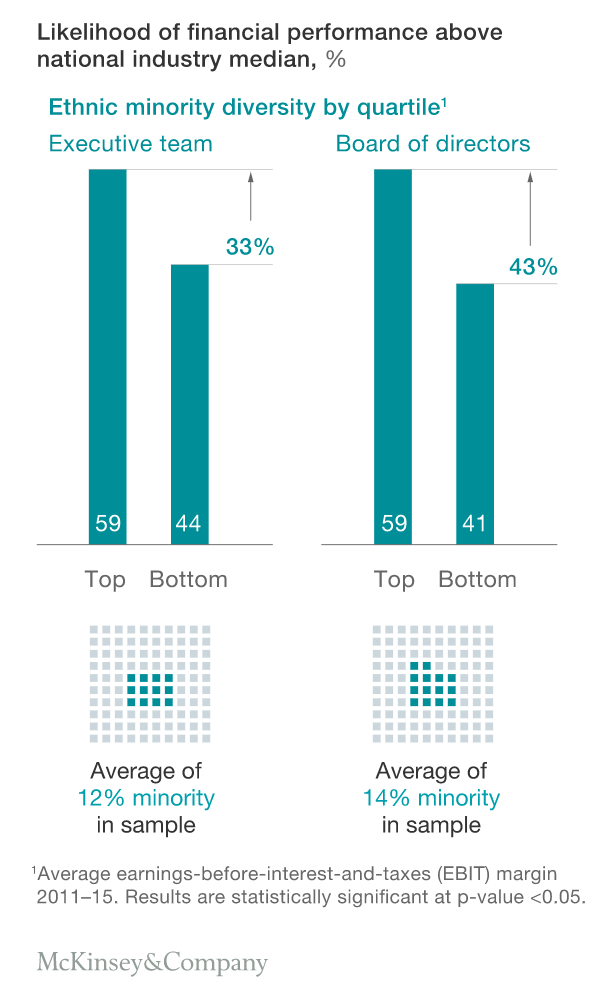
We regularly celebrate our rich cultural diversity by acknowledging dates of cultural significance at our monthly CEO town halls and our Harmony Week cultural feast, where staff bring plates of food from their cultural background to share with their colleagues.
Aboriginal and Torres Strait Islander Australians
2020 and the Black Lives Matter movement has further elevated the issues around injustice and inequality experienced by Aboriginal and Torres Strait Islander peoples in Australia.
Corporate Australia has been on a journey to reconciliation for some time. Landmark research undertaken by the Diversity Council of Australia, has highlighted the need for employers to develop genuine relationships with Aboriginal people, communities and organisations to better understand the social and economic challenges experienced by Indigenous people and to partner to implement strategies to address them.
Investa is firmly committed to promoting positive change for Aboriginal and Torres Strait Islander Australians. We have an important role to play in closing the economic, education and employment gap that exists between Australia’s First Nations people and the wider Australian community.
Investa’s inaugural Reconciliation Action Plan (RAP) marks the first steps on this journey. In line with its aspirations to engage and support a culturally diverse workforce, Investa hopes these actions will create a more inclusive environment for Aboriginal and Torres Strait Islander Australians to join our team.
Investa CEO Jonathan Callaghan says the completion of a RAP is just the first step in Investa’s commitment to reconciliation.
“We know that change starts from within, and to that end our Reflect RAP will focus on our greatest asset, our people.
“Our goal is to ensure that our staff, our tenants, our investors and our broader community of stakeholders are educated and respect our First Peoples’ rich history, cultures and achievements.
“We are confident that over time this will lead to a step change in the relationships and partnerships that Investa enjoys with Aboriginal and Torres Strait Islander Australians,” Mr Callaghan says.
Age
Age diversity means creating a workforce with a cross-section of people of different ages. Due to an ageing population and increasing life expectancy, there older Australians are remaining in the workforce for longer. There is considerable evidence to support the business case for age diverse workplaces and for the inclusion of mature workers.
In a tight labour market, research suggests older Australians represent a key (and growing) group of potential workers who can respond to the projected labour market shortage. Ernst & Young found that workers aged 45-64 had the highest profile of productivity. Retaining older workers can ensure key skills and knowledge are not lost and that the organisation can continue to tap into a wealth of accumulated experience.
Age inclusive teams and organisations perform better than their less age diverse counterparts, particularly when facing complex decision-making tasks.
Gender
According to the Diversity Council of Australia, gender diversity in the workplace delivers measurable and well documented benefits: improved financial performance, market share, retention, innovation, safety, group performance, access to talent, and productivity, as well as reduced turnover, meeting regulatory reporting requirements and minimising legal risks.
Despite the compelling business case for gender-balanced organisations, women account for just 21 per cent of executives in Australian companies. The United States and United Kingdom have even further to go, with 19 and 15 per cent respectively.
The same holds true for board positions, with Australian companies at 30 per cent, US companies at 26 per cent, and UK companies at 22 per cent.
Investa is proud to be one of only 119 organisations across Australia to be recognised by the Workplace Gender Equality Agency (WGEA) as an Employer of Choice for Gender Equality for 2019/20.
Investa was assessed across a range of criteria including practices in leadership, learning and development, remuneration, flexible working, support for carers and parents, employee consultation, harassment and discrimination. Our influence on driving gender equality across the property sector was also considered.
Amy Wild, Group Executive People & Culture, says the WGEA certification confirms Investa’s ambitious five-year strategy is delivering dividends.
“The WGEA certification provides further assurance to staff, customers, investors and other stakeholders that Investa is truly committed to achieving gender equality in Australian workplaces,” Wild explains.
“But the WGEA acknowledgement is just the first step for us. At Investa, we know that providing a work environment where all of our people feel safe, respected and included leads to happier and more productive people. Happy people impact our bottom line. It’s a no-brainer.”
Ms Wild says Investa’s current priorities include “improving access to and uptake of parental leave, carer’s leave and flexible working arrangements by our male team members, striving for better gender balance in both male and female dominated departments and improving our support options for carers of elderly or disabled relatives”.
Investa’s flexible working policy includes 21 different flexible working options, Ms Wild adds.
“Our people come from a diverse range of backgrounds and each of us has different priorities and needs outside of work. We’ve worked hard to ensure that anyone at Investa can work flexibly, for any reason, with a range of flexible options designed to appeal to a wide variety of interests and needs.
“Whether it’s starting work later so they can enjoy an early morning surf or supporting our millennials keen to explore Australia by taking a gap year, we’re committed to making it work.
“Working parents also have the opportunity to purchase additional annual leave to help manage childcare responsibilities over the school holidays.”
Ability
People with physical and intellectual disabilities have a lot to offer the workplace, and creating inclusive environments where they can contribute productively and meaningfully makes sense both economically and socially.
The Diversity Council of Australia argues that organisations with access to the broadest possible talent pool benefit from a diverse range of skills, abilities and valuable new perspectives.
Supporting employees with a disability can strengthen engagement and productivity by demonstrating a genuine commitment to the welfare of people and to diversity and inclusion more broadly.
Investa is a proud Job Support partner and employs people with intellectual disability in our Sydney headquarters who are among our most loyal, productive and positive team members and passionate advocates for the Investa brand and culture.
LGBTIQ+ and gender identity
In Australia, the Sex Discrimination Act 1984 (SDA) makes it unlawful to treat people less favourably than another person in a similar situation because of their sexual orientation, gender identity or intersex status.
Sexual orientation discrimination happens when a person is treated less favourably than another person in a similar situation because that person has a sexual orientation towards:
- persons of the same sex
- persons of a different sex
- persons of the same sex and persons of a different sex.
Same-sex couples are also protected from discrimination under the definition of ‘marital or relationship status’ in the SDA.
Gender identity discrimination happens when a person is treated less favourably than another person in a similar situation because of that person’s gender-related identity, appearance, mannerisms or other gender-related characteristics. It does not matter what sex a person was assigned at birth or whether the person has undergone any medical intervention.
The SDA also includes protection against discrimination on the basis of sex, pregnancy, breastfeeding, marital status and family responsibilities, as well as protection from sexual harassment.
The SDA makes it unlawful to discriminate when advertising jobs, during recruitment and selection processes, when making decisions about training, transfer and promotion opportunities, and in the terms, conditions and termination of employment.
The Diversity Council of Australia has found that LGBTIQ+ people in highly inclusive workplace cultures were three times as likely as workers in non-inclusive cultures to be out to everyone at work. In fact, 37 per cent of workers in highly inclusive cultures were out to everyone compared to only 12 per cent of workers in non-inclusive cultures.
An LGBTIQ+ inclusive culture was a greater influencing factor than whether an organisation was highly active in the LGBTIQ+ arena or had implemented LGBTIQ+ initiatives like an allies network or resource group.
Bold leadership was the next most important factor for LGBTIQ+ inclusion, according to the Diversity Council of Australia’s research. For example:
- 41% of workers with visible LGBTIQ+ leader were out to everyone, compared to 24% of workers in organisations with none
- 38% of workers with supportive leaders were out to everyone, compared to 25% of workers in organisations with none.
Investa has an active LGBTQ+ diversity committee that drives an educational program of events designed to inform employees about issues relevant to LGBTIQ+ inclusion at work and challenges in society more broadly. These events are fun and always attended by executive-level allies in a strong show of support and encouragement.
6. Case studies of diversity and inclusion in the workplace
Parental Leave
Investa recognises the importance of parental leave and supports our people during this special time. We recognise that everyone’s journey to parenthood is different. In 2019 Investa refreshed its parental leave policy to make it more inclusive and include specific provisions in cases of assisted reproduction, miscarriage, surrogacy, stillbirth and adoption.
The service requirement around eligibility for parental leave was removed, supporting the attraction of mid-career talent who otherwise may have been hesitant to change organisations when starting or growing their family. Investa also introduced grandparent leave, becoming the first company in our sector to do this. The period of time within which paid parental leave can be taken was extended to 18 months. This provides greater opportunity for secondary carers to participate more actively in the early care of children, normalises male caring responsibilities and improves retention of women at mid-senior levels of management.
Investa also increased secondary carer parental leave to four weeks paid, encouraging dads and partners to spend more time at home with their families during this important period. We also made it easier for men to access primary carer parental leave and increased the paid leave to 16 weeks. Following these changes, rates of Investa’s male team members accessing primary carer parental leave doubled in just 12 months. We have a target to increase the number of men accessing this leave by a further 15 per cent by December 2021.
Read more about our inclusive parental leave benefits: Investa introduces a wide range of market leading changes to parental leave policy.
And watch our Group Executive People & Culture, Amy Wild, discuss some of the changes here:
Truly embedding a flexible working culture
Flexible working had been a feature of the Investa employee experience for several years. But following the employee engagement survey in 2019, the People & Culture team uncovered challenges for people in some roles to access flexible working options, particularly when presence on site was required like facilities management. A handful of leaders were still ‘coming up the learning curve’ with managing flexible teams. And we were also seeing lower rates of men and people without caring responsibilities taking up flexible working options.
What we did
Investa’s People & Culture team conducted a significant research project to understand flexible working trends and options across industries and best practice approaches. We engaged with managers and employees at all levels to soundboard ideas and approaches, before engaging with the executive committee on proposed ideas. This culminated in the launch of a refreshed Flexible Working Arrangements Policy in October 2019, which was approved by the Board.
The revised policy:
- Reinforces Investa’s commitment to trialling flexible working arrangements for any reason, any role and at all levels of the organisation – in other words all roles can be flex
- Contains a suite of 21 different formal flexible working options, designed to suit the varied needs of our diverse organisation and ensure all roles are able to enjoy flexibility in where, when and how work is performed.
Driving cultural change meant coupling this policy to other measures designed to embed flexibility into business process. We trained all our people managers with practical hands-on workshops where managers were challenged to debunk flexible working myths, understand how to manage a flexible workforce and how differentiate between flexible working issues and performance issues.
We encourage our executive team to model flexible working, which normalises flexibility at the senior levels. Male and female leaders, including the CEO, ‘leave loudly’ outside standard hours.
We support every employee with the technology to enable remote working and make flexible working easier. This made the transition to a remote working arrangement during the COVID-19 pandemic a seamless experience for everyone.
We also monitor and act swiftly on feedback obtained during onboarding and exit interviews, as well as employee engagement surveys.
Combined with a comprehensive communications program that reinforces flexibility as the ‘Investa way’ we’ve achieved spectacular results:
- 94% of employees agree they have the flexibility they need to manage work and other commitments (86% in 2019)
- 91% agree they are genuinely supported if they make use of flexible working arrangements (78% in 2019)
- 74% of Investa employees worked flexibly prior to the COVID-19 pandemic and enforced remote working arrangements, across the full suite of available flexible working options, both formal and informal.
Staff turnover also reduced significantly in the 12 month period, and we believe our workplace flexibility program has played a central role in this.
Conclusion
The evidence is irrefutable: a commitment to diversity and inclusion makes good business sense. But this is no tick-box exercise – it means embracing diversity and inclusion as part of your company’s DNA. With strong leadership and innovative policies you can cultivate a unified culture, increase employee engagement, boost your brand and even achieve higher profits.


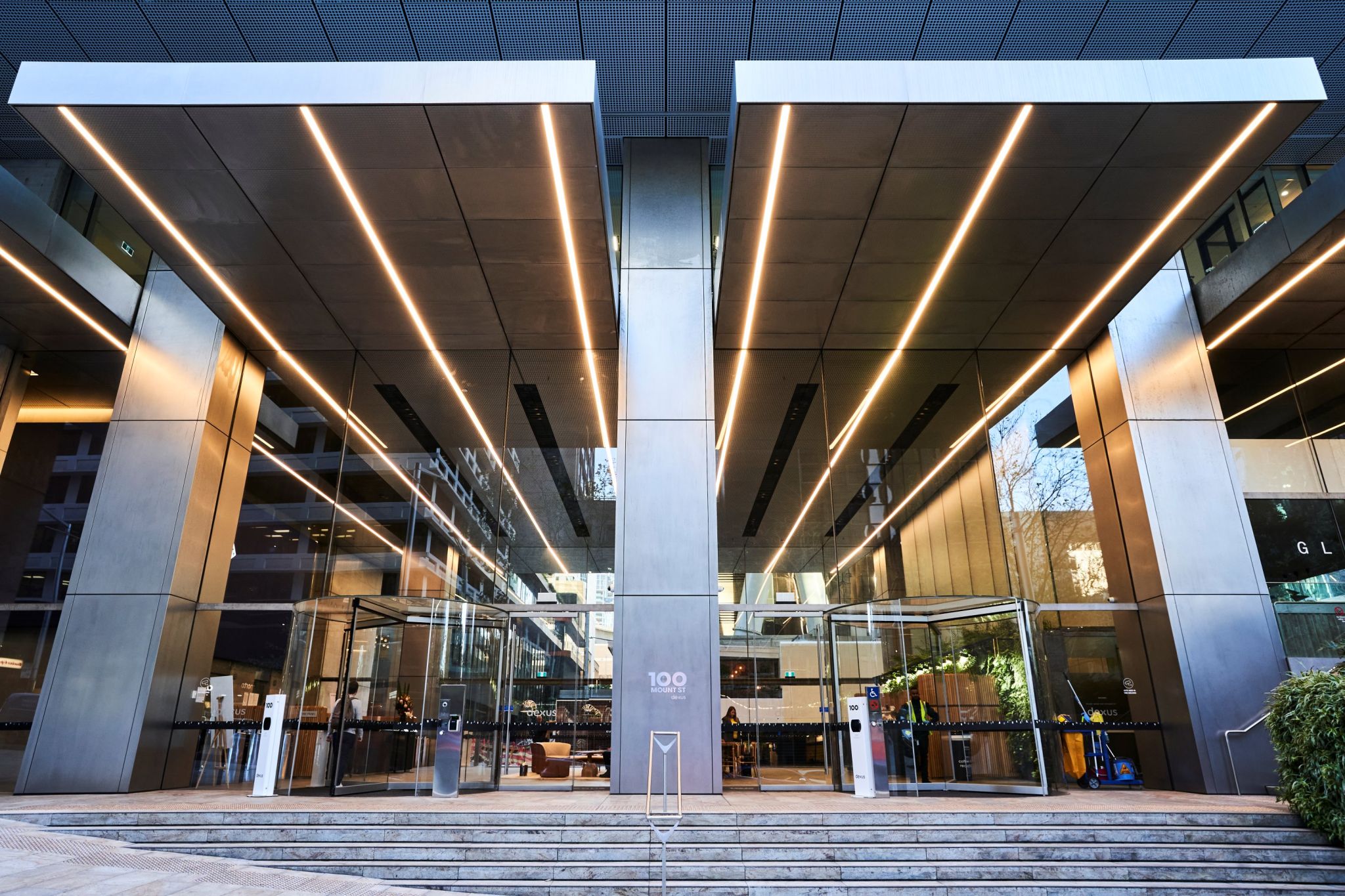

.jpg)